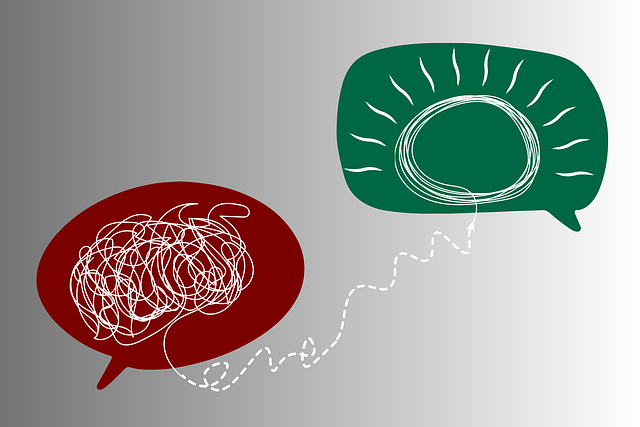In Denver, risk assessment is a cornerstone of mental health practice in grief counseling, considering historical trauma, current stressors, and cultural factors to ensure client safety. Professionals employ stress reduction methods, self-care practices, peer support, and supervision to build resilience amidst the emotionally demanding nature of their work. They create safe spaces through clear boundaries, confidentiality, and community outreach, integrating mindfulness principles to empower clients in their healing journeys while maintaining counselor well-being.
In the sensitive field of mental health practice, risk assessment is an indispensable tool for ensuring client safety. This article explores crucial aspects of risk evaluation tailored specifically for Denver grief counseling professionals. We delve into understanding the fundamentals of risk assessment in mental health, highlighting unique considerations within the context of grief counseling. Additionally, we provide effective strategies to enhance safety during therapy sessions, empowering Denver-based counselors to deliver compassionate and secure support.
- Understanding Risk Assessment in Mental Health Practice
- Unique Considerations for Denver Grief Counseling Professionals
- Strategies to Enhance Safety in Therapy Sessions
Understanding Risk Assessment in Mental Health Practice

In the field of mental health, risk assessment is a crucial tool for Denver Grief Counseling Therapy professionals to ensure the safety and well-being of both clients and themselves. It involves systematically evaluating various factors that may contribute to potential risks within therapeutic settings. By implementing comprehensive risk assessment practices, healthcare providers can proactively identify and mitigate dangers, fostering a secure environment conducive to healing.
This process encompasses not only recognizing individual client vulnerabilities but also understanding the broader context, including societal issues and cultural dynamics. For instance, effective risk assessment in Denver Grief Counseling Therapy may involve considering clients’ traumatic histories, current stressors, and potential triggers. Additionally, healthcare provider cultural competency training plays a vital role in navigating these complexities, ensuring that all clients receive culturally sensitive and responsive care. Stress reduction methods and stress management strategies are also integral components of this process, aiming to create a supportive atmosphere that promotes resilience and recovery.
Unique Considerations for Denver Grief Counseling Professionals

In the context of Denver Grief Counseling Therapy, mental health professionals face unique challenges due to the highly sensitive and emotionally charged nature of their work. Unlike other branches of mental health, grief counseling often deals with profound and complex emotions, including acute sadness, anger, and guilt, which can be both triggering for counselors and clients alike. Therefore, a thorough Risk Assessment for Mental Health Professionals is imperative, focusing not just on the client’s well-being but also on the counselor’s resilience and ability to manage their own mood.
Building resilience is crucial in this field. Denver grief counseling professionals should prioritize self-care strategies that include stress management techniques, supervision, and access to peer support networks. Incorporating these practices can help mitigate potential risks associated with exposure to intense emotions over time. Additionally, focusing on mood management through professional development and ongoing training ensures counselors are equipped to navigate the emotional landscape of grief counseling effectively while maintaining their own mental health.
Strategies to Enhance Safety in Therapy Sessions

Creating a safe and supportive environment is paramount for effective therapy sessions, especially when addressing sensitive topics like grief. Mental health professionals in Denver Grief Counseling Therapy can employ various strategies to enhance safety, fostering an atmosphere where clients feel secure to explore their emotions. One key approach is establishing clear boundaries from the outset, ensuring confidentiality and setting expectations regarding privacy. This creates a foundation of trust, enabling individuals to share deeply personal experiences without fear of judgment or repercussions.
Additionally, integrating Mind Over Matter principles can empower clients to take an active role in their healing journey. Encouraging self-reflection, mindfulness exercises, and positive affirmations during therapy sessions supports clients in developing coping mechanisms and building resilience. Community Outreach Program Implementation initiatives can also contribute to burnout prevention by offering additional resources and support systems both within the local community and for professionals themselves. These strategies collectively promote a nurturing environment, encouraging clients to engage fully in their therapeutic process while safeguarding the well-being of mental health practitioners.
In conclusion, understanding risk assessment is paramount for mental health professionals, especially those providing Denver grief counseling therapy. By recognizing unique considerations specific to this field and implementing effective safety strategies in therapy sessions, practitioners can enhance client well-being and mitigate potential risks. These proactive measures ensure a secure environment, fostering successful therapeutic outcomes for individuals navigating the complexities of grief.














